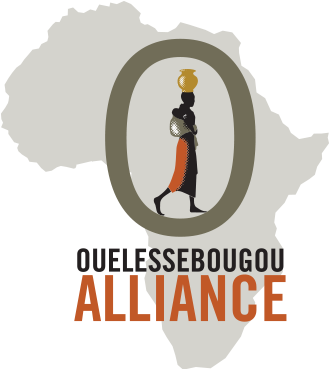Mosquito Abatement Team Hits the Ground Running in Mali
The culmination of years of preparation came to fruition in June 2023 when the scientists and mosquito experts hit the ground in Mali and set up the first-ever mosquito control project in Mali. The team from the US included Dr. Greg White and Jason Hardman from the Salt Lake City Mosquito Abatement District in Utah and Dr. Muhammad Farooq from the Anastasia Mosquito Control District in Florida. The US team was joined by University of Bamako collaborators and the in-field staff provided by Ouelessebougou Alliance.
The team arrived at the perfect time–at the very start of the rainy season in Mali–which is also the start of mosquito season. Setting up the program before mosquitos proliferate allows the team to eliminate the mosquitos in their larval phase and hopefully prevent a large adult mosquito population from growing.
The team began by visiting a number of villages in the Ouelessebougou area to determine which to choose for this year’s project. The villagers were extremely receptive and supportive of this ground-breaking effort to eliminate malaria, especially among their children. In one of the first villages we visited, we learned that a child had died from malaria just a few days before. It was a tragic reality that motivated the team to ensure project success. Eight villages were finally selected for the project. Mosquito traps will be set in each of the villages in search of malaria-carrying mosquitos. It’s truly a matter of life or death.
Once the villages were selected, the team set up and tested all the equipment that was shipped to Mali last year. The majority of the remaining time was spent training our two Malian mosquito control field technicians, Nfaly and Issa. They learned how to operate the equipment, where and how to set traps, how to identify malaria-carrying mosquito larvae in water sources with the naked eye, and how to apply the appropriate insecticides to targeted mosquito populations.
University of Bamako personnel will collaborate by receiving the collected mosquito samples from our team to identify and track the malaria-carrying mosquitos in the community. They will also provide direction and support to the field technicians as they embark on this remarkable endeavor.
The goal and the hope is that by quelling the malaria-carrying mosquito populations in the test villages, we will be able to quell the cases of malaria and ultimately the incidence of malaria-induced death among the vulnerable populations. The US team has returned home, but team members in Mali will continue their efforts in the villages through October 2023, the end of the rainy season. By that time, we should be able to document a meaningful set of findings. We are very optimistic about this life-saving project and express gratitude to the expedition team and project donors who have made it possible.





